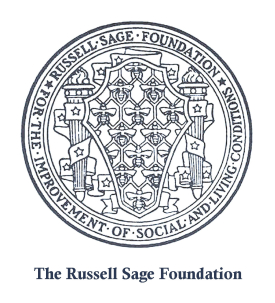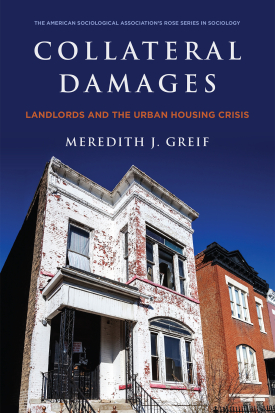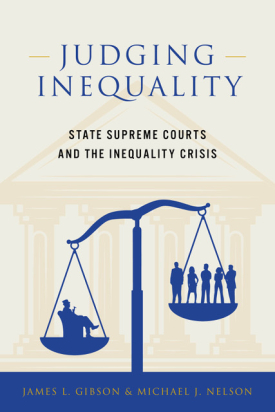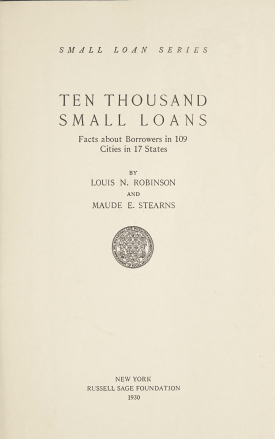Many studies have documented inconsistencies in judicial behavior. For example, federal appeals court judges become more politicized before elections and more unified during war time. Refugee asylum judges are two percentage points more likely to deny asylum to refugees if their previous decision granted asylum. Economists Daniel L. Chen and Elliott Ash will examine biases in human decision-making, focusing on judges and physicians. They will measure biases through 1) appeals and their outcomes for asylum and circuit court judges and 2) malpractice claims and their outcomes for physicians.

How the “Fourth” Was Celebrated in 1911: Facts Gathered from Special Reports
About This Book
This booklet provides advice on reforming Independence Day celebrations. It includes illustrated descriptions of safe celebrations; a list of state laws and city ordinances regulating the manufacture, sale, and use of explosives; and a collection of programs and suggestions.
LEE F. HANMER was associate director of the Department of Child Hygiene at the Russell Sage Foundation.
RSF Journal
View Book Series
Sign Up For Our Mailing List
Apply For Funding

Collateral Damages
About This Book
“A riveting narrative of how decent people are transformed by conducive structural conditions into malevolent slumlords, Collateral Damages is guaranteed to make you think about the housing crisis in a new light. Meredith J. Greif lays bare how the very regulations meant to protect marginalized tenants stoke landlords’ illegal and immoral behaviors, ensuring even greater precarity in tenants’ lives. If you want to understand housing in America, this book is not to be missed.”
—KATHRYN EDIN, William Church Osborn Professor of Sociology and Public Affairs,Princeton University
“Collateral Damages provides a critical window into the understudied practices and motivations of small landlords, who collectively provide homes to most of the nation’s poor renters. Meredith J. Greif highlights the financial vulnerability of these housing providers and shows how structural forces can lead some of them to engage in harmful practices. Balanced and engaging, the book sends an important, cautionary note about how well-intentioned local laws can backfire and harm the very low-income renters they are meant to protect.”
—INGRID GOULD ELLEN, Paulette Goddard Professor of Urban Policy and Planning, New York University
Changes in federal housing policies over the past several decades shifted the primary responsibility for providing low-income renters with affordable housing from the government to private landlords. Federal, state, and local governments have passed laws to ensure that low-income renters are protected from illicit landlording practices. Yet we know little about how private landlords experience local housing regulations. In Collateral Damages, sociologist Meredith Greif examines how local laws affect private landlords and whether tenants are, in fact, being adequately protected.
For three years, Greif followed 60 private landlords serving low- and moderate-income residents in the Cleveland, Ohio, metropolitan area to better understand how local regulations, such as criminal activity nuisance ordinances (CANOs) and local water billing regulations, affect their landlording practices. CANOs are intended to protect communities by discouraging criminal activity on private properties. Property owners can face financial and criminal sanctions if they do not abate nuisance activities, which can include littering, noise, drug use, and calls for police assistance, including calls for domestic violence. Local water billing regulations hold landlords responsible for delinquent water bills, even in cases where the account is registered in the tenant’s name. Greif finds that such laws often increase landlords’ sense of “financial precarity” – the real or perceived uncertainty that their business is financially unsustainable – by holding them responsible for behavior they feel is out of their control. Feelings of financial uncertainty led some landlords to use illegitimate business practices against their tenants, including harassment, oversurveillance, poor property upkeep, and illegal evictions. And to avoid to financial penalities associated with CANOs and delinquent water bills, some landlords engage in discriminatory screening of vulnerable potential tenants who are unemployed or have histories of domestic violence or drug use. In this sense, by promoting a sense of financial insecurity among landlords, laws meant to protect renters ultimately had the opposite effect.
While some landlords, particularly those who rented a larger number of units, were able to operate their businesses both lawfully and profitably, the majority could not. Greif offers practical recommendations to address the concerns of small- and mid-sized landlords, such as regular meetings that bring landlords and local authorities together to engage in constructive dialogue about local housing policy, issues, and concerns. She also proposes policy recommendations to protect renters, such as establishing the right to counsel for lower-income tenants in eviction hearings and enacting a federal renter’s tax credit.
Collateral Damages is an enlightening investigation on how local laws and practices perpetuate disadvantage among marginalized populations and communities, in ways that are hidden and often unintended.
MEREDITH GREIF is assistant professor of sociology at Johns Hopkins University
RSF Journal
View Book Series
Sign Up For Our Mailing List
Apply For Funding

Judging Inequality
About This Book
Winner of the C. Herman Pritchett Book Award from the American Political Science Association
Winner of the Virginia Gray Book Award from the State Politics and Policy Section of the American Political Science Association
“Judging Inequality is an extraordinary achievement. In this empirical tour de force of exceptional transparency using massive new data sets, Gibson and Nelson have produced a seminal and indispensable work on state supreme courts replete with nuanced, compelling, and sometimes surprising results. Bravo!”
—Melinda Gann Hall, Professor of Political Science, MSU Distinguished Faculty Award Winner, and College of Law Faculty Affiliate, Michigan State University
“For too long, political scientists have paid little attention to the state courts relative to their importance in U.S. politics and policy. This pathbreaking book and data by James Gibson and Michael Nelson should ignite such attention. In Judging Inequality, the authors analyze six thousand cases to present compelling evidence on how judicial institutions and judges’ back-grounds shape inequality in the United States today.”
—Brandice Canes-Wrone, Donald E. Stokes Professor of Public and International Affairs and Professor of Politics, Princeton University
“A pathbreaking, first-of-its-kind study of how U.S. state law and courts—purportedly closer to the people themselves than the U.S. Supreme Court—effectively shield powerful economic interests from popular calls for equality and redistribution, Judging Inequality is an exemplary work of social science. James L. Gibson and Michael J. Nelson’s masterful yet sobering account is a must-read for anyone who harbors hopes for addressing inequality challenges that have plagued American society for generations through strategic litigation at the state court level.”
—Ran Hirschl, Professor of Government and Earl E. Sheffield Regents Chair in Law, University of Texas at Austin
Social scientists have convincingly documented soaring levels of political, legal, economic, and social inequality in the United States. Missing from this picture of rampant inequality, however, is any attention to the significant role of state law and courts in establishing policies that either ameliorate or exacerbate inequality. In Judging Inequality, political scientists James L. Gibson and Michael J. Nelson demonstrate the influential role of the fifty state supreme courts in shaping the widespread inequalities that define America today, focusing on court-made public policy on issues ranging from educational equity and adequacy to LGBT rights to access to justice to worker’s rights.
Drawing on an analysis of an original database of nearly 6,000 decisions made by over 900 judges on 50 state supreme courts over a quarter century, Judging Inequality documents two ways that state high courts have crafted policies relevant to inequality: through substantive policy decisions that fail to advance equality and by rulings favoring more privileged litigants (typically known as “upperdogs”). The authors discover that whether court-sanctioned policies lead to greater or lesser inequality depends on the ideologies of the justices serving on these high benches, the policy preferences of their constituents (the people of their state), and the institutional structures that determine who becomes a judge as well as who decides whether those individuals remain in office.
Gibson and Nelson decisively reject the conventional theory that state supreme courts tend to protect underdog litigants from the wrath of majorities. Instead, the authors demonstrate that the ideological compositions of state supreme courts most often mirror the dominant political coalition in their state at a given point in time. As a result, state supreme courts are unlikely to stand as an independent force against the rise of inequality in the United States, instead making decisions compatible with the preferences of political elites already in power. At least at the state high court level, the myth of judicial independence truly is a myth.
Judging Inequality offers a comprehensive examination of the powerful role that state supreme courts play in shaping public policies pertinent to inequality. This volume is a landmark contribution to scholarly work on the intersection of American jurisprudence and inequality, one that essentially rewrites the “conventional wisdom” on the role of courts in America’s democracy.
JAMES L. GIBSON is Sidney W. Souers Professor of Government at Washington University in St. Louis and Professor Extraordinary in Political Science, Stellenbosch University, South Africa.
MICHAEL J. NELSON is Jeffery L. Hyde and Sharon D. Hyde and Political Science Board of Visitors Early Career Professor in Political Science and associate professor of political science at the Pennsylvania State University.
RSF Journal
View Book Series
Sign Up For Our Mailing List
Apply For Funding
The COVID-19 pandemic has exacerbated existing social, economic, and racial inequalities, especially those in housing. In response, significant governmental efforts have tried to support housing stability caused by the pandemic through numerous policies. The effects of eviction moratoria and other emergency measures are likely to be highly variable as these policies were issued by multiple levels and branches of government including local and state courts, state and local executives, and legislative bodies and were differentially implemented.
African Americans, Latinos and Native Americans have much greater exposure to the criminal justice system than their native-born white counterparts. High poverty rates and systematic racism contribute to this difference, with poor black males more likely to go to jail when unable to pay bail or to be arrested because of outstanding fines and fees. Disparities by race and ethnicity emerge throughout the system, from the quality of interactions with the police and their outcomes to differential bail, trial and sentencing decisions.
Volunteer Attorneys and Legal Services for the Poor
About This Book
This report is about the Community Law Offices (CLO), which operated two neighborhood law offices in Manhattan—in East and Central Harlem—that provided free legal services to individuals and groups who could not afford private attorneys. CLO relied primarily on attorneys in private practice who volunteered part of their time to handle the cases brought to the two offices. Formation and growth, an overview of its operations, and an evaluation of volunteer performance are discussed.
Douglas E. Rosenthal was chief of the Foreign Commerce Section of the Antitrust Division of the Department of Justice. Robert A. Kagan is professor of political science and law at the University of California, Berkeley.
Download
RSF Journal
View Book Series
Sign Up For Our Mailing List
Apply For Funding

Ten Thousand Small Loans
About This Book
This 1930 report of a statistical study of 10,000 small loans is part of the Small Loans Series, a general survey of small loans prepared for the Russell Sage Foundation by the Department of Remedial Loans. Topics include the development of the small loan business and the social, economic, and living conditions of borrowers.
Louis N. Robinson was professor of economics at Swarthmore College.
Download
RSF Journal
View Book Series
Sign Up For Our Mailing List
Apply For Funding
Pagination
- Previous page
- Page 4
- Next page
